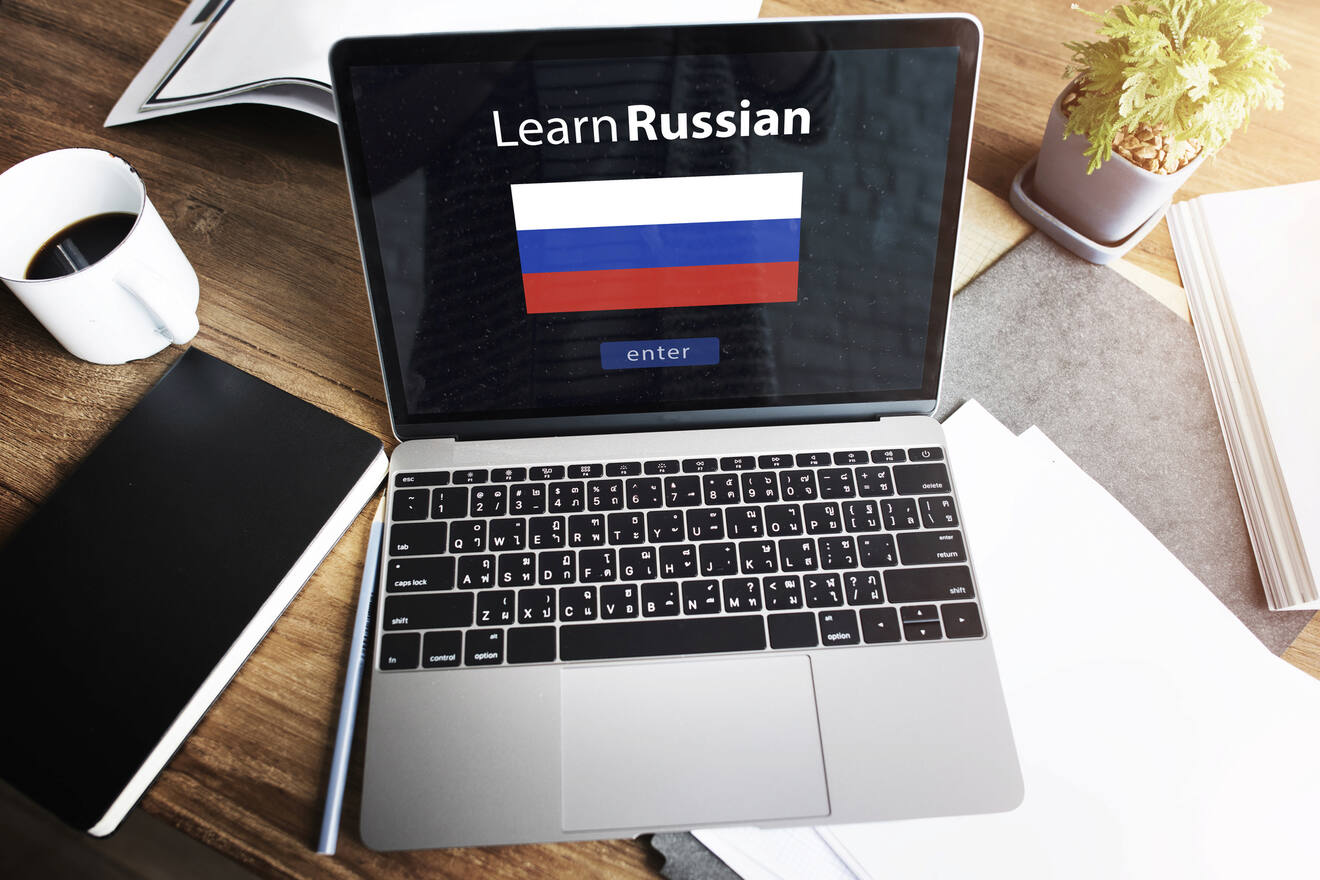
What is the best thing that you can do if you’re traveling to Russia? Get a grasp of the Russian language! The reason why you need to learn Russian is because the level of English isn’t high in most former soviet countries.
If you don’t know any Russian at all, your trip is going to be fun, but not closely as fun as it could have been if you knew at least some basics! So if you’re planning on traveling to Russia, Belarus, Kyrgyzstan or Kazakhstan, it’s a good idea to brush up on your Russian skills! Russian is also widely spoken in other places, such as Ukraine, the Caucasus and Central Asia.
In this Russian guide, you will learn:
- the Russian alphabet
- 5 learn Russian tips that will save you lots of time and effort
- 25 useful phrases in Russian for first time travelers
Let’s get started, davai!
Yulia: This post was written by Ari Helderman. He’s from the Netherlands and has been learning Russian since 2016. He runs a YouTube channel fully in Russian called “Ари говорит по-русски”. Take a look at the video below to hear him speak Russian (the skill he truly mastered in my opinion, sometimes it feels like he is a native!)
Start with the alphabet
Every single time whenever someone figures out that I speak Russian, the first thing they ask is:
“But isn’t Russian incredibly hard to learn? The alphabet looks so different!”
I usually replied something like: “Yes, Russian isn’t easy to learn. But it’s certainly not because of the cyrillic alphabet!”
You see, the Russian – or officially Cyrillic – alphabet is a distant relative from the Latin alphabet western languages use.
That means that you find much overlap between the letters.
In general, you can divide the Russian letters into 5 groups. Here they are:
Let’s talk about the 5 different types of letters that you will encounter in the Russian alphabet (I also have a table with the sound for each letter below in the post):
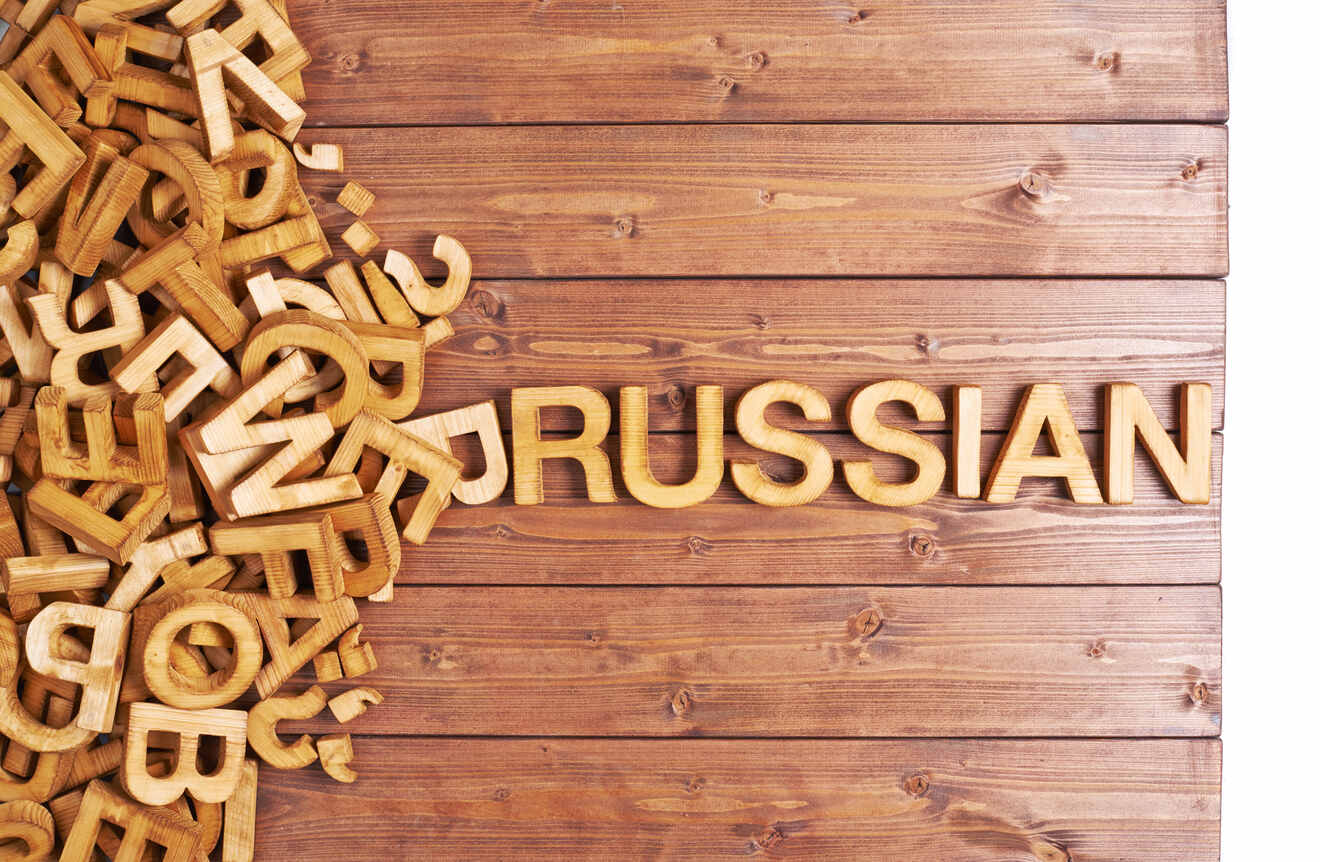
1. Letters that look and sound the same in English: т о м а к
This is pretty self explanatory so we are not going to talk about that for long, they sound exactly the same as in English!
For example, the name Tom is written like this in Russian: Том.
There are 5 Russian letters that are the same in Russian as in English. So that means that you already know 5/33 of the Russian alphabet!
2. Letters that look different, but sound similar to sounds in English: б г д з и л п ф э
Then there are 9 letters that look different from English, but in reality have a similar sound to what you’re used to in English.
These are tricky, since you have to learn to recognize them first. And then memorize them with their correct sound, so that you can read them (the sounds of each letter are below in the post).
3. Letters that look similar, but sound different from their English counterparts: е у в н р с х
After those, there are 7 more letters that look similar to English letters, but have a different pronunciation.
These are ‘false friends’, as you recognize them and are inclined to pronounce them like you would in English.
With these 7 letters it’s good to memorize them and make sure you distinguish them from the 5 ‘true friends’ letters that are the same in both languages!
4. New letters and sounds: ю я ё ж ц ч ш щ ы й
Then there are 10 letters that look completely new, but they have a similar sound in English. It’s just that they don’t have their own letter.
Some of these letters are easy, as you will already know how to make the sounds. But some of them can be more difficult, as you likely need to practice new sounds.
5. Letters without sound: ъ ь
A letter without a sound – now, whaaaaaat?
If you’ve been counting, you’ve found that we have 2 letters left. These are letters that are not pronounced at all. What they do instead is modify the previous letter.
The soft sign (ь) makes the previous letters softer, and the hard sign (ъ) makes the previous letter sound harder. This may seem weird to you, but it’s actually quite easy to understand once you see some examples.
How to pronounce all the letters from the Russian alphabet?
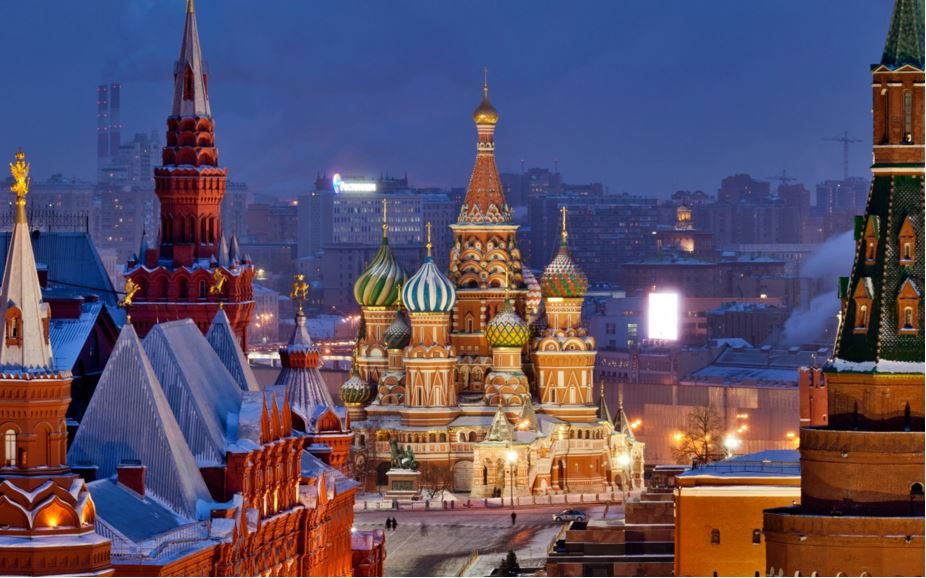
Now that you’ve had a quick introduction to the Russian alphabet, let’s go a little deeper and see how you should pronounce them.
This is a basic list. There are some nuances of the pronunciation of some letters that are not covered in this list. That’s because you don’t want to get overwhelmed.
The following list is absolutely enough to start speaking well and to be understood.
| а – a – father | р – r – red (pronunciation is more like the Scottish rolled ‘r’) |
| б – b – bank | с – s – sit |
| в – v – van | т – t – team |
| г – g – gun | у – oo – foot |
| д – d – dad | ф – f – fun |
| е – ye – yes | х – ch – loch (as in the Scottish Loch Ness) |
| ё – yo – beyond | ц – ts- bits |
| ж – zh – pleasure | ч – ch – chair |
| з – z – zero | ш – sh – ship |
| и – ee – feel | щ – shch – pushchair |
| й – y – toy | ъ – – ‘hard sign’: serves to keep the consonant it follows hard |
| к – k – key | ы – i – bit |
| л – l – lamp | ь – – ‘soft sign’: used mainly to soften the preceding consonant |
| м – m – milk | э – e – get |
| н – n – nice | ю – yu – university |
| о – o – doctor (if unstressed it sound more like an ‘a’) | я – ya – yard |
| п – p – please |
See, that wasn’t too hard, was it? If you just know these pronunciation rules, native speakers will understand you.
5 tips on how to learn Russian
Now that you know the basics of the cyrillic alphabet, it’s good to understand how to learn Russian.
I’ve been learning Russian since 2016, and these are tips I would give to my 22-year old self if I were to start learning Russian all over again.
1. You must practice speaking if you want to have conversations in Russian
It may seem obvious, but if you want to get good at speaking Russian, you are going to have to practice speaking Russian.
Unfortunately, it’s all too easy to get caught in the trap of ‘learning just a little bit more’ before you start speaking.
So you first want to learn more words, and understand the grammar better before you make a serious attempt at speaking.
But the reality is that you never feel ‘ready’ to speak.
Speaking Russian is difficult. Especially if you’ve never done it before.
So however much you learn, the first couple of dozens of interactions with native Russian speakers are going to be uncomfortable.
The best way to get through is to embrace the discomfort. Don’t expect to have perfect conversations. Instead, expect that your first conversations are going to be awkward especially since in the beginning you don’t know enough words.
But the trick is to get started overcoming the language barrier as soon as possible!
What you find is that the more you practice speaking, the more fun it becomes. And the more fun it becomes, the more you look forward to speaking. And this motivates you further to learn more words, and to understand grammar better.
Which improves your speaking skills, so you want to practice more.
And the upwards circle continues 🙂
So don’t worry about making mistakes when speaking. And see your awkward and uncomfortable first conversations as a rite of passage that every Russian student has to go through.
2. Focus on learning vocabulary, as the Russian language has few cognates with English
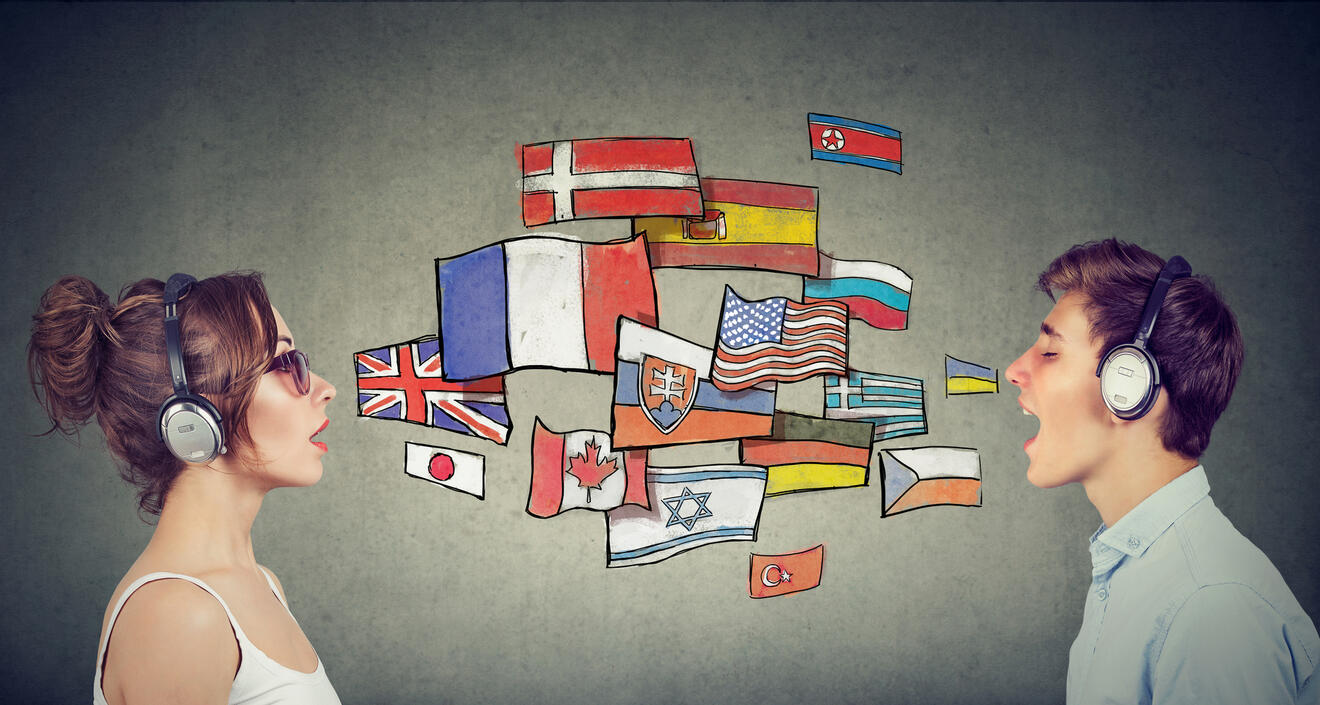
The second thing that you want to focus on, after you’ve gotten comfortable making mistakes while speaking, is that you learn plenty of new vocabulary.
The reason for that is that Russian barely has any cognates with English (or any other non-slavic language for that matter).
This is completely different from Spanish, French, or even German.
After all, English is a mix of Romance languages plus Germanic languages. So that means that you already understand quite a few words in those other languages.
While Russian is also an Indo European language, like English, they diverged much longer back.
So that means that you have to learn many more new words in order to communicate well.
A good way to learn new words is to use the apps on your phone because they can function as modern day flash cards. And since most of us already have our phones with us most of the time anyways, you can always take out your phone when you’re bored, and learn a couple more Russian words.
Some good apps I can recommend are:
3. Grammar is important, but you don’t need perfect grammar to be understood

I clearly remember the day I learned that Russian has cases.
I had just learned the phrase for “I want a beer” – я хочу пиво. So naturally I wanted to say “I want vodka” after. So I said: я хочу водка. I was puzzled when I figured out that this phrase is incorrect. It should be: я хочу водку.
Did you see the ending change from ‘а’ to ‘у’? That’s the Russian accusative case!
The Russian language works differently from most other languages. Where English uses a strict word order to indicate what the function of a noun is in the sentence, Russian uses cases.
The upside is that you don’t really need to worry about word order.
But the downside is that you need to remember 6 different endings for each of the 4 noun groups (masculine, feminine, neuter and plural).
Each adjective also changes their ending based on the noun it’s with. So that’s another 24 endings you need to understand and remember. (In reality it’s a bit less than 24, as there is some overlap).
This is arguably the most difficult part of learning Russian. If you ask 100 Russian students what they struggle with most, 80 reply: “cases!”.
However, this shouldn’t be such a big problem.
Many people think that without understanding cases you cannot have conversations, this is simply not true!
Imagine this: you’re walking in the morning in the center of your city, and a tourist comes up and asks you in broken English “I to know where tasty bakery breakfast?”
What does he want?
He wants to know where he can find a nice bakery to have breakfast.
Same with Russian. The main goal is to be understood.
And like we spoke about above, making mistakes is human. It’s inevitable. It’s something you have to endure if you want to speak Russian well.
Making mistakes helps you learn faster.
If you aim for perfect grammar before you’re comfortable speaking, you will hold yourself back from speaking. Which holds you back from learning more.
So make sure you’re comfortable speaking and making mistakes. And then gradually learn more grammar.
That way you have the best of both worlds. You’re comfortable speaking, and your understanding of Russian grammar is also good.
So speak first, learn grammar later!
4. Spend as much time as possible immersing yourself in Russian
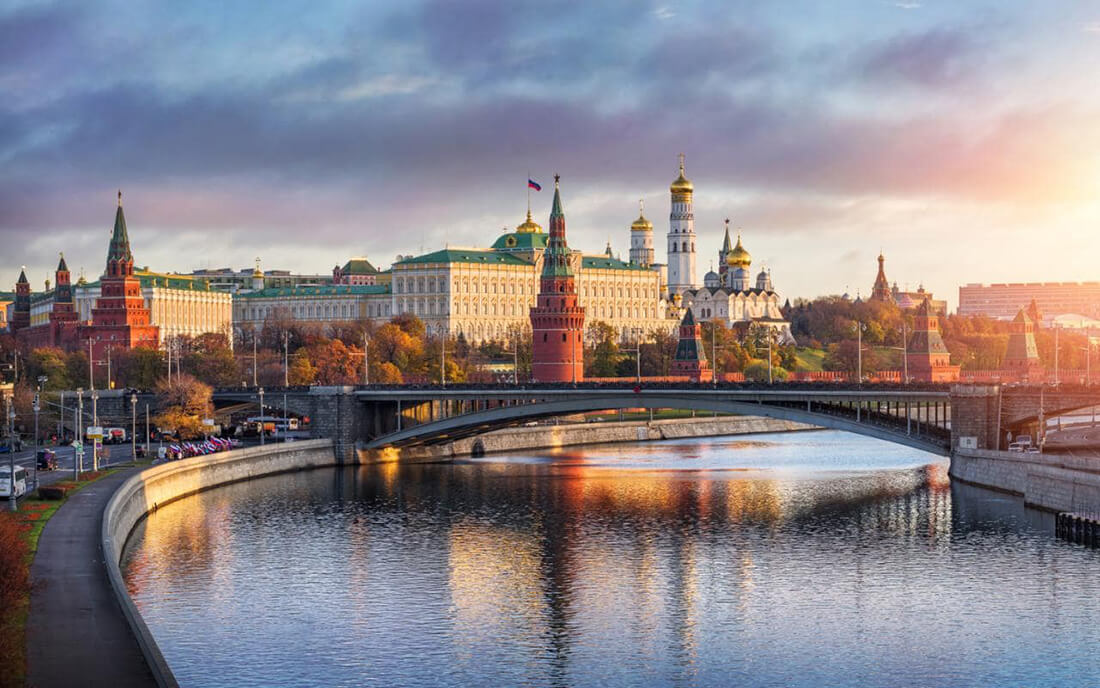
So you’ve booked your trip to Russia (or any Russian speaking country). You’re excited to go there, but you have maybe 2 months left.
You got the tickets, so now it’s real. And you’re planning how to spend the next 2 months improving your Russian.
What should you do?
First of all, sign up for a good class or online learn Russian program.
Second, make sure to spend as much time as possible immersing yourself in the Russian language.
If you would’ve tried doing this only 10 years ago, it would’ve been tough. And 20+ years ago it would’ve been impossible.
But now in 2022 and beyond, you have so many possibilities to immerse yourself in Russian.
You can:
- watch interesting Russian series: the channel StarMediaEn has hundreds of series with English subtitles
- play engaging video games in Russian
- read simple bilingual books: a good start would be Russian short stories for beginners
- listen to Russian music: look online for artists in your favorite genre
- watch classic Soviet movies: this channel has almost all the Soviet movies online (the most popular movies have English subtitles)
- Follow influencers that make content in Russian: I personally like to watch videos of вДудь (interviews with famous Russian people), Антон Птушкин (Ukrainian travel blogger) and Сергей Орлов (Russian comedian).
- read the Russian news: news sites such as ria.ru tend to have easy to digest articles.
There are so many opportunities to practice Russian in a fun and engaging manner.
The best ways however are where you listen to correct spoken Russian. And where you can find an English translation.
So I would recommend you start watching Russian series with English subtitles. To make this simple to integrate in your life, just switch the time you watch English series for Russian series.
You’re likely already watching series on a daily/weekly basis, so it shouldn’t be difficult to get into the habit of watching Russian series often.
The main benefit of doing this is that you expose your brain to lots of correct spoken Russian. This helps you:
- better understand where a word starts and where a word ends
- get a gut feeling of which words are common
- give your brain the raw input to better understand how to pronounce words correctly yourself
And the best thing is that it’s just a lot of fun to do. Ever had the experience of planning to watch just a single episode of a Netflix series on a Sunday afternoon, only to find yourself finishing the season late that night?
Imagine doing that, but now with a Russian series. But instead of wasting half your day, you’re being productive and improving your Russian skills.
5. Remember to have fun!
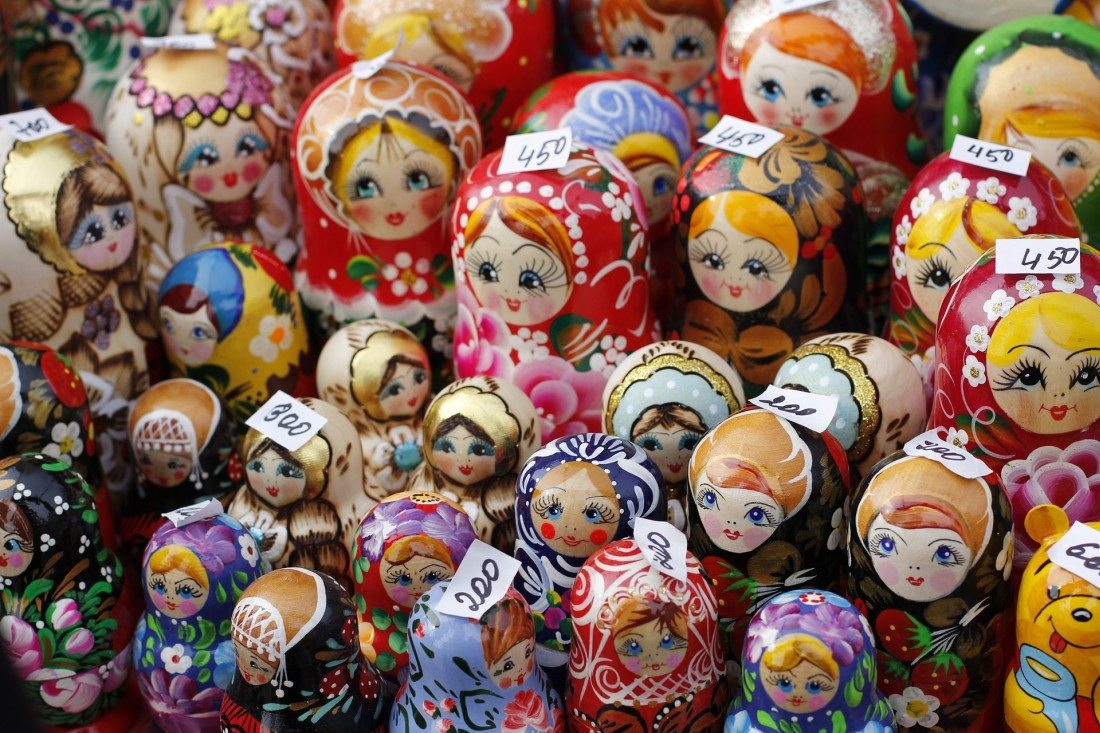
The final advice almost made me quit learning Russian.
It was a cold day between Christmas and NYE in 2016. I was sitting in my room thinking about my upcoming goals for the next year, and decided my Russian was going to be C1 by the end of 2017.
So I made an elaborate plan of how I was going to spend my time for about 2 hours every day for the next year.
In reality I stuck to this schedule for about 3 days. Then I got so unmotivated that I almost stopped practicing altogether.
Learning Russian is probably just a hobby for you. It’s not something your life depends on. If you progress a bit slower, no one’s going to die. So make sure you enjoy the process!
Don’t force yourself to do things you don’t want to do. Sure, it’s okay to push yourself to listen to another audio lesson, or to learn a couple of more words.
But you shouldn’t dread your practice. If you dread practicing, you’re likely to burnout. And if you burnout, you will quit learning completely.
The truth is that becoming good in Russian is just a matter of not quitting.
If you learn a couple of new words, practice grammar, watch Russian series, and practice speaking every day, it’s guaranteed you will be able to speak Russian after a while.
So make sure to keep it fun. It’s better to practice for 20 minutes per day for 6 months, than it is to practice for 2 hours per day, only to quit after 2 weeks.
BONUS: 25 useful phrases to learn Russian
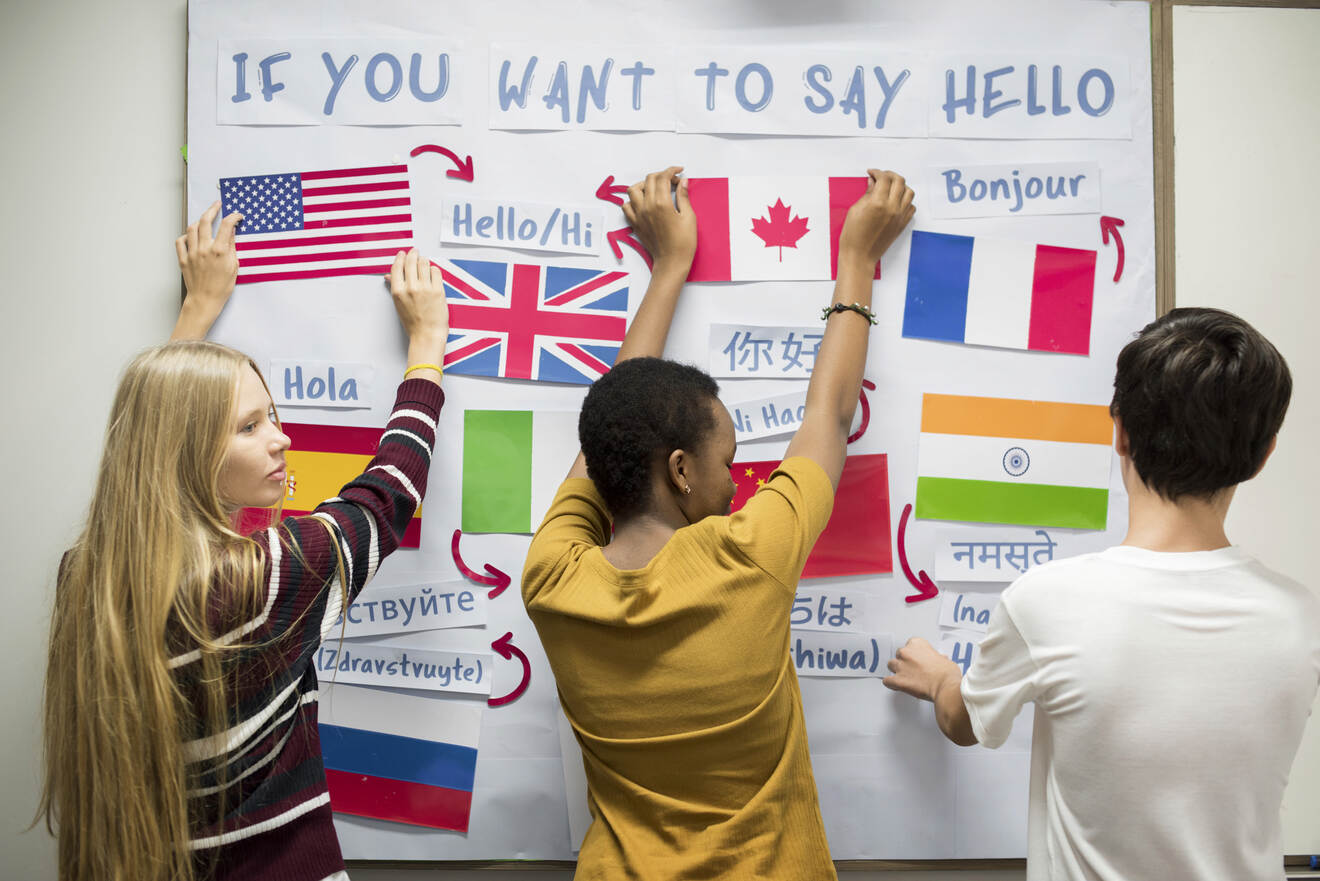
To finish this guide to learning Russian, you can learn the 25 useful phrases in Russian below.
If you just want to get a basic grasp of the Russian language, these phrases are all that you need.
The great thing is that Russian people are incredibly grateful to hear a foreigner speak their language. So if you know a couple of basic phrases, they’ll be more than happy that you took the time and effort to learn some Russian!
Instead of giving you a list of 100’s of words to learn, the list is brief. Anyone can learn these words in a couple of days. Or during your flight to Russia.
- Hello (formal) – здравствуйте – zdravstvuyte
- Hello (informal) – привет – privet
- Goodbye – до свидания – do svidanya
- Thank you – спасибо – spasibo
- Please – пожалуйста – pozhaluysta
- What’s your name? – как Вас зовут? – kak vas zovut
- My name is … – меня зовут – menya zovut
- Nice to meet you – приятно познакомиться – priyatno poznakomitsya
- You too (as a response to “nice to meet you”) – взаимно – vzaimno
- How are you? – как дела? – kak dela?
- Good – хорошо – khorosho
- Bad – плохо – plokho
- I’m sorry – извините – izvinite
- I don’t understand – я не понимаю – ya ne ponimayu
- I am from … – я из – ya iz
- I speak Russian – я говорю по-русски – ya govoryu po-russki
- Do you speak English? – Вы говорите по-английски? – vi govorite po-anglisky
- Where is the bathroom? – где туалет? – gde tualet?
- How much does it cost? – сколько стоит? – skolko stoit?
- I like Russia – мне нравится Россия – mne nravitsya rossiya
- Tasty – вкусно – vkusno
- Yes – да – da
- No – нет – net
- Probably not – да нет наверно – da net naverno
- Pancake (Russian use this as a light swearing word) – блин – blin
Now, of course there are plenty more useful words. But if you’re rushed for time, these 25 words and phrases are your best time investment.
If you are planning on staying in Russia (or any Russian speaking country) for longer than a week, it’s wise to learn more words. But that’s beyond the scope of an article. In that case it would be smart to sign up for classes or an online program.
| 👋 Hello | Privet |
| 🙋♂️ Goodbye | Do svidanya |
| 👍 Yes | Da |
| 🙅♀️ No | Net |
| 🙏 Thank you | Spasibo |
| 😀 My name is … | Menya zovut |
| 🇬🇧 Do you speak English? | Vi govorite po-anglisky |
Conclusion

Many people think Russian is incredibly difficult to learn. But that doesn’t need to be the case. If you have a healthy interest in the language, all you need to do is consistently learn new words, study grammar, practice conversations and immerse yourself in Russian media.
And especially if you just want to learn the basics of the language for a trip, you can get very far with as little as 10 to 20 hours of studying. Make sure you know the alphabet and some common phrases – Russian people will be grateful that you’re one of the few foreigners who has taken the effort to show interest in their language and culture!
Ari
P.S. If you want to learn more from Ari, he has a 30-day program where he can help you speak conversational Russian, so that you can have conversations with native speakers. You can find more information here.
Pin it for later!
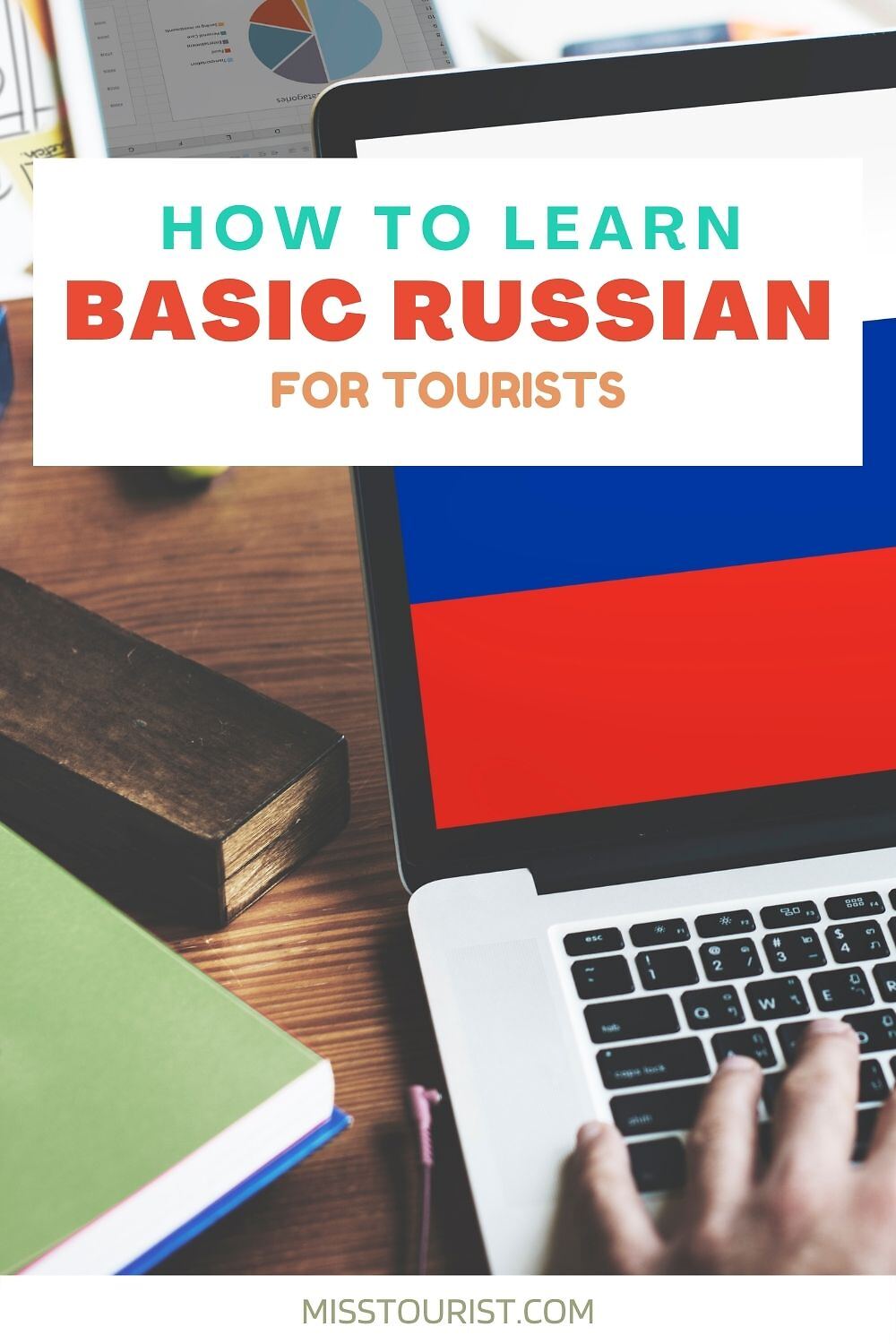
Pin it for later!
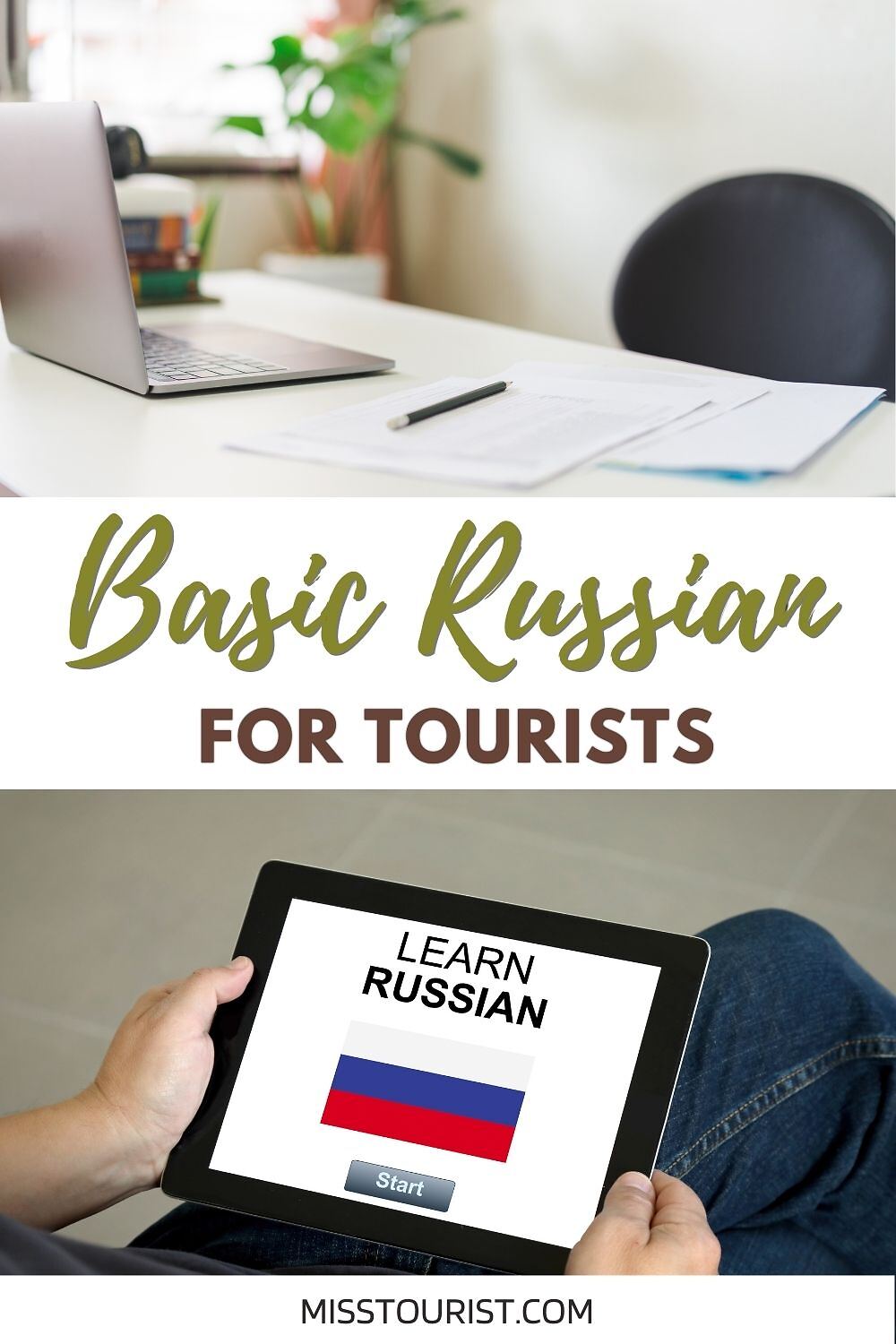

 Ari Helderman
Ari Helderman 






